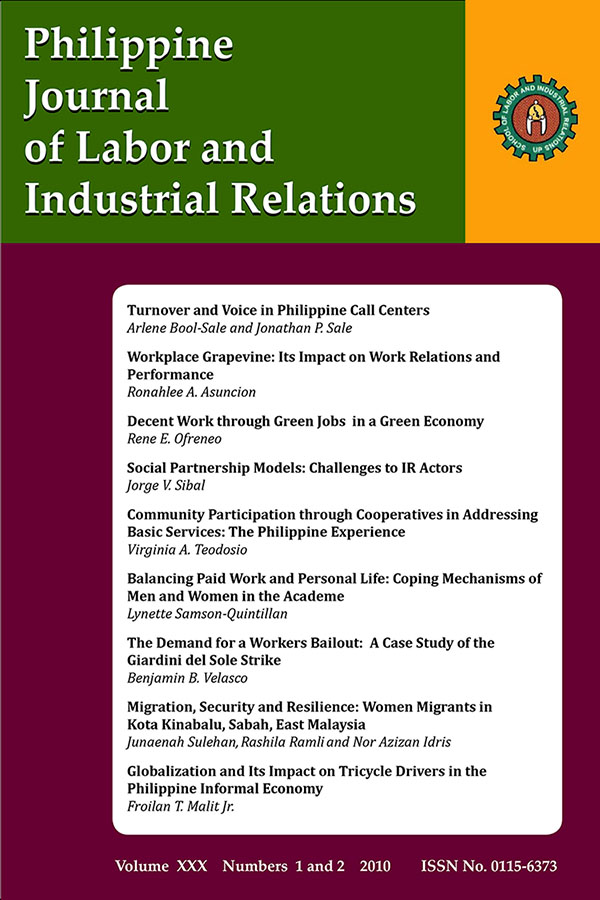The Demand for a Workers Bailout: A Case Study of the Giardini del Sole Strike
Abstract
The paper is a study of the irst workers’ strike against mass retrenchments in the wake of the global economic crisis. The workers of the furniture factory of Giardini del Sole in Mandaue City went on strike in February 2009 after the company laid off more than half of the workforce. In the months after the Giardini strike, labor militancy ratcheted up among Cebu workers. Using the perspective of labor economics, the paper focuses speciically on the workers’ demand for a bailout (a higher package of separation beneits than mandated by law) in the face of job losses and loss of income.
The paper starts with a survey of the impact of the crisis on Cebu’s economy in general and then on the furniture industry in particular. Then, it delves into the call for a bailout of the workers. After which, it reviews the basis for a workers bailout in Keynesian economic theory. The paper concludes by posing the question whether the so-
called “Great Recession” will see a revival of institutional economics that was born out of the Great Depression some 80 years ago. The topic of the paper continues to be relevant given the threat of a second round of the “Great Recession” or what is called the double dip recession.
The research primarily depended upon an analysis of documents concerning the nature and impact of the global crisis, and the facts and circumstances concerning the Giardini strike. Secondarily, the study employed interviews with key leaders of the Giardini strike and with advocates of a workers bailout.


